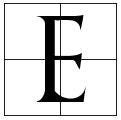When Failed Exams Led to One of the World’s Bloodiest Wars
The beginning, end, and reverberation of the Taiping Rebellion
 Exams are no fun for most. This is a feeling that has been felt since the inception of exams, and there are few exams as old and influential as the Chinese imperial exam, an exam used to vet future imperial bureaucrats. Unfortunately, one test taker’s continuous failures, coupled with the changing religious and cultural environment in China, led to one of the largest and most impactful civil wars in world history. One whose lasting effects would lead to the eventual disintegration of a dynasty and the rebirth of a new nation. If you don’t succeed, try, try again. If you still don’t succeed, start a rebellion. This is the story of the beginning, end, and reverberation of the Taiping Rebellion.
Exams are no fun for most. This is a feeling that has been felt since the inception of exams, and there are few exams as old and influential as the Chinese imperial exam, an exam used to vet future imperial bureaucrats. Unfortunately, one test taker’s continuous failures, coupled with the changing religious and cultural environment in China, led to one of the largest and most impactful civil wars in world history. One whose lasting effects would lead to the eventual disintegration of a dynasty and the rebirth of a new nation. If you don’t succeed, try, try again. If you still don’t succeed, start a rebellion. This is the story of the beginning, end, and reverberation of the Taiping Rebellion.
An aspiring scholar
Hong Xiuquan was born on the first of January, 1814 in the southern Chinese province of Guangdong, to a land-owning middle-class family. He was of Hakka descent, a southern subgroup of the prominent Han diaspora, that had and would continue to experience prejudice and violence from other Chinese ethnic groups. At an early age, Xiuquan showed academic promise, and his parents made significant financial sacrifices towards his education in hopes that he would attain the distinguished status of government official. To attain this position, Xiuquan needed to pass the extremely select imperial examination.
The Chinese imperial examinations were a merit based system of exams used to vet potential candidates for civil service. The examinations which primarily concerned Confucian texts were rigorous and had a pass rate of 1–2%. They had been used for over a thousand years and because they were merit-based, they gave potential for significant social mobility. The importance of these exams had become embedded in Chinese social fabric within Confucian mythology. Hong Xiuquan’s local village tried their best to make sure he would succeed in the prestigious work of civil service to bring honor and wealth to his village.
Initially, Hong Xiuquan’s imperial career seemed plausible. He was able to recite Confucian texts at an early age and placed first in local preliminary examinations. At 13 years old, he then moved to Guangzhou to take the official examinations, only to fail. He then became a school teacher for a few years and retook the exam when he was 22 years old, once again failing. While Xiuquan was in the large metropolis of Guangzhou at this time, he was exposed to Christian missionaries and received a pamphlet called Good Words to Admonish the Age. The pamphlet contained translated excerpts from the New Testament as well as criticism of Confucianism. Most importantly, it was written from a Chinese perspective by the first Chinese Protestant minister, Liang Fa. This allowed for a seemingly organic diagnosis of the Chinese religious and social sentiment at the time. The contents of this religious tract became so influential that in future years they would become virtually extinct for the perceived destruction that they caused.
Celestial visions
But even with this Christian exposure, Xiuquan was not deterred from his bureaucratic aspirations, and he took the exam for a third time the next year and failed once again. After this failure, Xiuquan had a nervous breakdown, which resulted in him having a dream that would prove significant. He dreamt that he was in Heaven and was visited by two men, the first a father figure with a golden beard, the other an older brother. They bemoaned that the Chinese people were worshiping evil spirits and the false teachings of Confucius, they told Xiuquan all the teachings he needed to do to save the Chinese people and rid the world of evil. Once he recovered from his delirium, even with this purportedly vivid vision, Xiuquan took the civil service exam for the fourth and final time, once again failing.
Saddened by the failure that was his civil service career, Xiuquan consulted the Christian literature he was exposed to earlier and would identify the father figure in his visions as God and the older brother as Jesus. He connected the dots and diagnosed the dream as a divine message that he was God’s son and Jesus’s brother, and the Qing Dynasty was overrun by demons that needed to be defeated.
Xiuquan was on a mission to Christianize an industrializing China. In 1842 China lost the first Opium War to the British, which resulted in unbalanced trade favoring the British as well as cession of territory. Many Chinese suffered and the opportunity for a rebellion had come.
It is interesting to think what would have happened had he passed the exam, would his vision have had little importance to his life, and would he even have converted to Christianity? Would China have been flung into decades of violent war and strife?
Growing rebellion
Hong Xiuquan began his rebellion by burning Buddhist and Confucian idols in his home, and soon his fellow villagers followed suit. Considered sacrilegious, Xiuquan and his followers were banished from their villages, however, this did not stop them from continuing to preach throughout their region. Xiuquan and his followers were eventually invited to study with Protestant missionaries, which allowed Xiuquan to craft his version of the Bible, the Taiping Bible.
His interpretation was Christianity for a changing China. It was largely a mixture of Christianity, innate Confucianism, and Daoism with an emphasis on social justice and communal distribution of property. Xiuquan’s ideas became increasingly popular among the poor Hakka, and the movement became an intersection of social, religious, and ethnic malaise. Soon he had amassed thousands of followers in his movement, the God Worshiping Society. Worried by this growth, the Qing Dynasty tried its best to suppress the movement, but it was too late and by late 1850 significant unrest occurred in South-Eastern China.
In 1851 on his thirty-seventh birthday, Hong Xiuquan founded the Taiping Heavenly Kingdom. After military victories, the rebellion amassed important territory along the Chinese southeast, eventually installing Nanjing as their capital in 1853. Millions lived in the unofficial Taiping Kingdom where reforms were implemented such as the abolition of prostitution and opium, equal rights for women, and land reforms that had property commonly distributed. Significant victories were attained for the rebels, and the Qing Dynasty was further weakened by conflict with France and the United Kingdom in the Second Opium War of 1856.
The fall
But cracks were beginning to show in the Heavenly Kingdom. Infighting occurred as Yang Xiuqing a major military commander and East King of the kingdom attempted to seize the Taiping King’s Heavenly throne in 1856. His plot was foiled and his followers violently purged in an event known as the Tianjing Incident. Furthermore, foreign powers were reluctant to support the rebels and the movement required the mobilization of nearly all citizens to continue. Almost all men in the kingdom as well as thousands of women would go on to fight for the Taiping Heavenly Kingdom.
It was apparent that Hong Xiuquan was not in a competent mental state and an adequate leader for the rebellion, and soon factions began to form among his high-ranking officials. By 1859, Hong Rengan, a distant cousin of Hong Xiuquan and a well-learned Protestant convert has given the position of Gan Wang (Shield Prince), a position equivalent to Prime Minister. With his authority, Rengan attempted to modernize and centralize authority within the Heavenly Kingdom, advocating for railroads, nationalized Taiping banks, and trade with Western powers. However, even with his attempts to modernize, the Kingdom still had a strong stance against opium, which would eventually lead to its downfall.
By the end of 1860, the Western powers had triumphed against the Qing Dynasty in the Second Opium War, allowing a continued profitable exportation of opium to China from European merchants. This was under threat with the rebellion. As the rebels attempted to seize the port of Shanghai for the third time, Western Powers quickly came to the defense of their former adversaries.
In 1862 the Taiping Kingdom’s capital of Nanjing was besieged for two years and in 1864 the spark of the revolution, Hong Xiuquan died of an illness induced by eating raw vegetables, with some suggesting suicide. That same year, Nanjing fell to imperial forces, and the Taiping rebels were massacred.
Echoing revolutions
The Taiping Rebellion was the bloodiest conflict of the 19th century, with an estimated death toll ranging from 20,000,000–70,000,000. It was only superseded in casualties by World War 2.
Confined primarily to southeastern China, the Taiping Rebellion had a devastating effect on the Qing Dynasty, even after it was squashed, as other rebellions such as the Dungan Revolt, Miao Rebellion, and Nian Rebellion all sprung up from a similar social, ethnic, and economic defiance to the Qing Dynasty. This further accelerated the Qing Dynasty’s decline until its dissolution in 1912.
But the reverberation of the Taiping Rebellion would remain in consciousness, with Christianity’s reputation in China becoming besmirched to many. The revolution of 1911 which would topple the Qing Dynasty and install the People's Republic of China would borrow the sentiment of land reforms and social rights from the Taiping Rebellion. However, these sentiments were only enacted to their fullest during the Chinese Communist Revolution as the Communist Party mustered strong support from the peasantry and enacted large-scale land seizures by the state. Mao Zedong believed that the Taiping Rebellion was an unfinished rebellion, so he went on to finish it, installing himself as the spiritual figurehead of China. The rest is living history.
